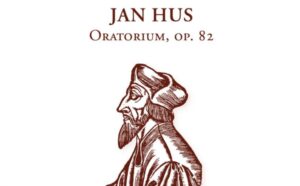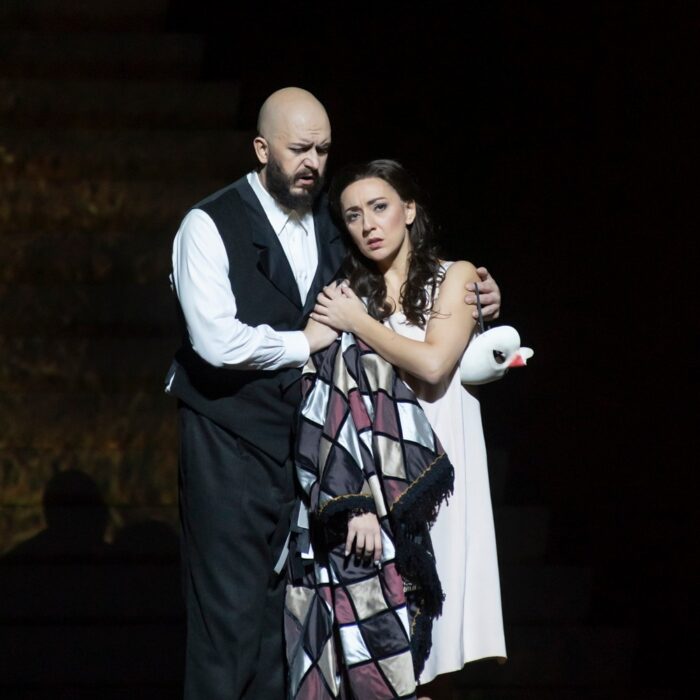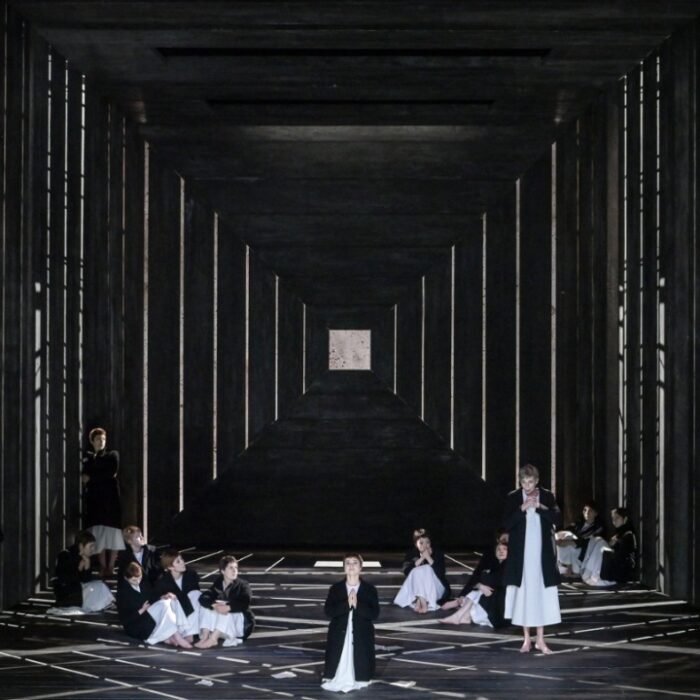
CD Review: Carl Loewe’s ‘Jan Hus’
By Bob DieschburgHad there been no Franz Schubert, the German Carl Loewe would have had the monopoly on 19th century art songs. His songs are melodious, witty, and with an unfailing blend of Romanticism and comely Biedermeier aesthetics. The most famous are “Die Uhr” and ballads like “Der Erlkönig” or “Herr Oluf.” All are based on German and Nordic folklore.
Yet in addition to some 400 ballads, Loewe also composed six operas, two symphonies, and no fewer than 17 oratorios of which the 1841 “Jan Hus” is presented on CD, by Oehms Classics, for the very first time.
A Reformist and More
Jan or Johannes Hus (sometimes spelled Huss) was a Bohemian reformist in the late 14th and early 15th centuries when the crisis known as the Great Occidental Schism undermined the Catholic Church – politically and spiritually – until its renewal at the ecumenical Council of Constance in 1414.
Hus, who was burned in Constance as a heretic, had chastised the moral failure of the Church, its debauchery, and entanglement in secular strife. He influenced the Reformation movement of Martin Luther and others but, in nationalist terms, also became a symbol against political and religious oppression, notably in the context of the Czech National Revival and the formation of Czech national identity in the 18th and 19th centuries.
A Passion Revived
Loewe, in his oratorio, relies on the German philologist August Zeune to recreate the martyrdom of Hus: from his invitation to Constance up to the execution. In his text, Zeune relegates the actual trial to the third and final part of the composition which, in a macabre twist, also includes a chorus of the flames consuming Hus at the stake.
The relationship with his students and Jerome of Prague is described in the first part, as is a somewhat circumstantial scene with Wenceslaus of Luxembourg and his wife Sophia who are both sympathetic to the nonconformist teachings of Hus in Bohemia.
In line with the Bach Revival, however, Loewe devotes most of his attention to what, in analogy to Bach, may be called the Passion of Jan Hus, complete with choir scenes and a near-operatic flair which drew the attention of contemporary critics like Robert Schumann.
Schumann’s review in the “Neue Zeitschrift für Musik” from October 1842 is indeed the most valid assessment of Loewe’s oratorio that I have come across. It accurately deems it a hybrid, modeled upon the religious oratorio in the vein of the St. Matthew’s Passion yet with a melodramatic hint uncharacteristic of the Baroque tradition.
The music, consequently, remains rather eclectic and uneven in terms of its inspiration. It mixes contrapuntal writing like the “Kyrie” in part three with the burlesque tones of the students’ choir in the introduction.
This may, in part, explain the relative obscurity of Loewe’s work, which to Schumann is something of an outlier, for better or for worse.
A Chorus’ Triumph
Nevertheless, conductor Thomas Gropper and the Barockorchester L’arpa Festante deliver a very solid rendition of “Jan Hus.” They are aided by a fine group of soloists including tenor Georg Poplutz in the title role and bass-baritone Dominik Wörner. Both are habitués of the Baroque repertoire with a keen sense for musical timing and phrasing.
The cast is completed by Monika Mauch and Ulrike Malotta who were both featured in the 2018 recording of Loewe’s “Das Sühnopfer des Neuen Bundes,” equally on Oehms Classics.
A real triumph, however, is the performance of the Arcis-Vocalisten who seamlessly switch between dramatic registers, from the picturesqueness of the students’ chorus to the solemnity of the final “Ungetrübt, rein.”
In short, “Jan Hus” is not the unjustly neglected masterpiece that enthusiasts of his ballads may have hoped for. Unsurprisingly so, if I may add, as the intimacy or German “Heimlichkeit” of “Tom, der Reimer” or “Der Wirtin Töchterlein” translates to the conceived grandeur of a historical opus only moderately well.
It remains, however, a well crafted piece of music with enjoyable tunes and a flawless execution. “Jan Hus” on Oehms Classics will not go unnoticed even if it does not permanently establish itself in the repertoire.


